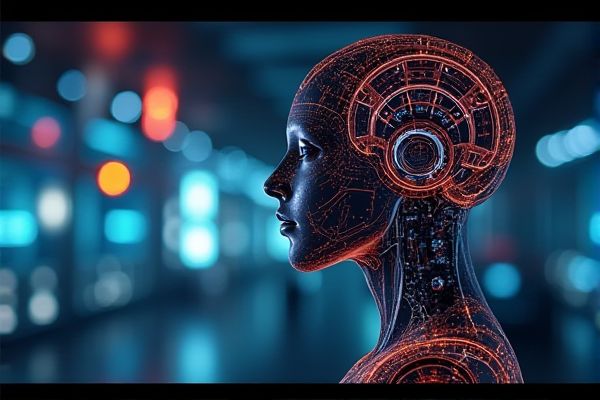
AI plays a crucial role in various aspects of the film industry, enhancing storytelling, production, and marketing processes. Automated script analysis tools evaluate themes and character arcs to guide writers in refining their narratives. Deep learning algorithms facilitate visual effects, enabling realistic CGI and streamlining post-production workflows. AI-driven audience insights help studios target marketing efforts more effectively, ensuring films reach the right demographics for maximum engagement.
AI usage in film industry
Script Analysis
AI can enhance script analysis in the film industry by identifying plot inconsistencies and character development opportunities. Advanced algorithms can evaluate screenplay structure, helping writers refine their narratives for better audience engagement. For example, institutions like the American Film Institute may leverage AI tools to improve the writing process of budding filmmakers. This technology can also offer insights into genre trends, increasing the chances of a script's success in a competitive market.
Visual Effects (VFX)
AI technology in the film industry can significantly enhance Visual Effects (VFX) production. By automating complex processes like scene composition and rendering, it can reduce the time and cost of creating high-quality visual effects. For instance, using AI algorithms, studios can generate realistic backgrounds or character designs more efficiently. This technological advancement offers filmmakers a chance to push creative boundaries while optimizing resources.
Automated Editing
Automated editing in the film industry offers the possibility of streamlining production processes. AI tools can analyze footage and make quick decisions about scene transitions, potentially reducing editing time significantly. Companies like Adobe are investing in AI features that enhance creative workflows, providing filmmakers with more time for artistic expression. This technological advancement presents an opportunity for smaller studios to compete with larger institutions by maintaining efficiency and lowering costs.
Audience Insights
AI can analyze audience behavior and preferences, offering valuable insights for filmmakers. For instance, tools like IBM Watson can assess viewer reactions to trailers or scenes, helping in refining content before release. This data-driven approach increases the likelihood of creating financially successful films by catering to audience tastes. Overall, leveraging AI can enhance decision-making processes at various stages of film production, from script development to marketing strategies.
Predictive Analytics
AI usage in the film industry has the potential to optimize production processes through predictive analytics. By analyzing script elements, audience trends, and market data, studios can forecast the likelihood of a film's success. For example, large institutions like Netflix deploy these algorithms to assess viewer preferences and tailor their content accordingly. This approach may lead to better investment decisions and increased viewer engagement.
CGI Integration
The integration of AI in the film industry, especially in CGI, enhances visual effects and animation processes. For example, studios like Industrial Light & Magic utilize machine learning algorithms to streamline rendering times and improve image quality. This technological advancement could lead to more creative possibilities, allowing filmmakers to explore innovative storytelling techniques. The chance of reduced production costs through AI automation may benefit smaller independent productions looking to compete in the market.
Voice Synthesis
AI usage in the film industry has opened new opportunities, particularly in voice synthesis. This technology can create realistic voiceovers for characters, potentially reducing costs associated with hiring voice actors. Companies like Adobe are utilizing AI to enhance sound design and post-production processes. The chance for studios to streamline production workflows and maximize creativity is significant.
Content Personalization
AI usage in the film industry enhances content personalization, allowing viewers to receive tailored recommendations based on their viewing habits. For example, streaming platforms like Netflix leverage algorithms to analyze user data and suggest films that align with individual preferences. This personalization increases user engagement and satisfaction, potentially boosting subscription rates. By utilizing AI, filmmakers may gain insights into audience tastes, thereby improving the chances of a film's commercial success.
Production Cost Optimization
AI can significantly reduce production costs in the film industry through automation and data analysis. Tools like machine learning algorithms can optimize scheduling and resource allocation, minimizing downtime. For instance, studios like Warner Bros. have implemented AI to streamline post-production tasks, which enhances efficiency. This technology also provides insights into audience preferences, allowing for more targeted marketing and potentially higher box office returns.
Digital Asset Management
AI can enhance the film industry through improved digital asset management, allowing for better organization and retrieval of footage. Tools that utilize AI algorithms can automate tagging and categorizing, making it easier for filmmakers to access relevant content quickly. For example, a platform like Adobe Premiere Pro is seeing features that leverage AI for streamlined workflows. This capability stands to reduce production time and increase efficiency, providing a competitive advantage in content creation.
 techknowy.com
techknowy.com